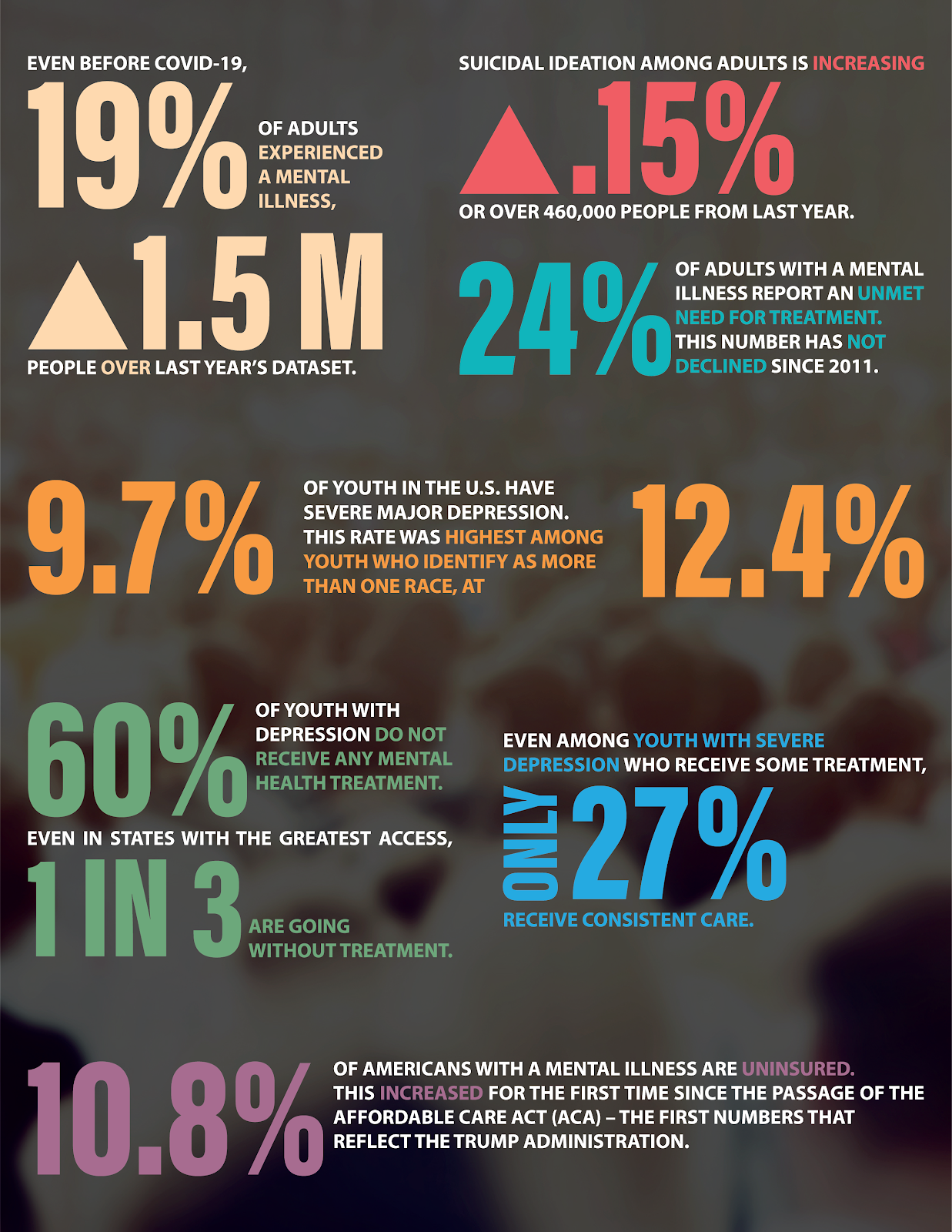Before the COVID-19 Pandemic hit, mental health in teens was not nearly as significant as it is now. The coronavirus has affected teens mental health by worsening conditions such as anxiety, depression, and ADHD, increasing the use of alcohol or other harmful substances, and changing sleep and eating patterns. Pre-COVID-19, most of the signs of mental health issues were caused from bullying on social media and in school, and drugs or alcohol abuse. Before the pandemic, mental health was tied to social media, but since then, it has been associated with loneliness and quarantine. During the pandemic, mental disorders such as anxiety and depression in teens has been worsening. Being in isolation creates loneliness that leads to these issues in teens, especially when these teenagers were actively socializing pre-covid. A test for anxiety and depression was done from January to September 2020 and 315,220 people took both of these tests. There was a 93% increase in the anxiety rate since 2019 and a 62% increase in the depression rate since 2019. During the COVID-19 Pandemic, 37% of people have reported to have suicidal thoughts or tendencies everyday of September 2020. Teenagers struggle the most with their mental health during the pandemic, and they are the majority of people showing symptoms of anxiety or depression. Although mental health in teens is improving due to the lack of quarantine and the improvement in safe, socially distanced social interactions, it is still important to support and check in on friends and family. In times like these, it is crucial to keep in contact with loved ones, especially those who seem to be struggling with their mental health.
Sources:
Gritsenko, Valentina, et al. “COVID 19 Fear, Stress, Anxiety, and Substance Use Among Russian and Belarusian University Students.” International Journal of Mental Health and Addiction, Springer US, 21 May 2020, www.ncbi.nlm.nih.gov/pmc/articles/PMC7241583/.
“Mental Health and Coping During COVID-19.” Centers for Disease Control and Prevention, Centers for Disease Control and Prevention, www.cdc.gov/coronavirus/2019-ncov/daily-life-coping/managing-stress-anxiety.html#:~:text=The%20coronavirus%20disease%202019%20.
“Mental Health Issues On the Rise Among Adolescents, Young Adults.” AJMC, www.ajmc.com/view/mental-health-issues-on-the-rise-among-adolescents-young-adults.
Spector, Nicole. “Mental Health: How We’ve Improved and Where We Need to Do Better in 2020.” NBCNews.com, NBCUniversal News Group, 10 Jan. 2020, www.nbcnews.com/better/lifestyle/mental-health-how-we-ve-improved-where-we-need-do-ncna1108721.
“Teens Discuss Mental Health during COVID-19.” PBS, Public Broadcasting Service, www.pbs.org/newshour/extra/daily-videos/teens-discuss-mental-health-during-covid-19/.
“2021 The State of Mental Health in America Report.” Your NAMI Affiliate, namirhodeisland.org/2021-the-state-of-mental-health-in-america-report/.



